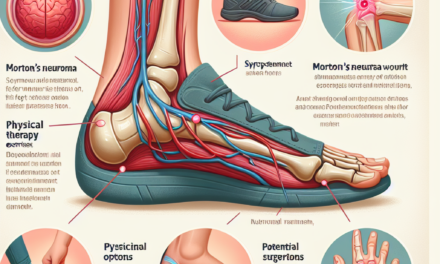Embracing Holistic Healing: The Next Era of Health Care Recovery
In recent years, the healthcare landscape has undergone significant transformations, with a growing emphasis on holistic healing approaches. As we navigate through the complexities of modern medicine, it becomes increasingly clear that a more integrated approach to health care is essential for comprehensive recovery. This article delves into the concept of holistic healing, exploring its principles, benefits, and the future it holds in the realm of health care recovery.
Understanding Holistic Healing
Holistic healing is an approach that considers the whole person—body, mind, and spirit—in the pursuit of optimal health and wellness. Unlike conventional medicine, which often focuses on treating specific symptoms or diseases, holistic healing seeks to address the underlying causes of health issues by promoting balance and harmony within the individual.
At its core, holistic healing is based on several key principles:
- Interconnectedness: Holistic healing recognizes that all aspects of a person’s life are interconnected. Physical health, emotional well-being, and spiritual fulfillment are all integral to overall wellness.
- Individualized Care: Each person is unique, and holistic healing emphasizes personalized treatment plans that cater to individual needs, preferences, and circumstances.
- Prevention and Wellness: Holistic approaches prioritize preventive care and lifestyle changes that promote long-term health rather than merely treating symptoms.
- Empowerment: Holistic healing encourages individuals to take an active role in their health journey, fostering self-awareness and personal responsibility.
- Integration of Modalities: Holistic healing often incorporates various therapeutic modalities, including traditional medicine, alternative therapies, and lifestyle changes.
By embracing these principles, holistic healing offers a comprehensive framework for understanding health and recovery, paving the way for a new era in health care.
The Benefits of Holistic Healing
Holistic healing presents numerous benefits that extend beyond mere symptom relief. By addressing the root causes of health issues and promoting overall well-being, individuals can experience profound transformations in their health and quality of life.
1. Comprehensive Health Improvement
One of the most significant advantages of holistic healing is its ability to improve overall health. By focusing on the interconnectedness of body, mind, and spirit, holistic approaches can lead to:
- Enhanced Physical Health: Holistic healing often incorporates nutrition, exercise, and lifestyle changes that contribute to better physical health. For instance, a study published in the Journal of Alternative and Complementary Medicine found that patients who engaged in holistic practices reported improved physical health outcomes.
- Emotional Resilience: Holistic therapies such as mindfulness, meditation, and counseling can help individuals manage stress, anxiety, and depression. Research indicates that mindfulness practices can significantly reduce symptoms of anxiety and improve emotional well-being.
- Spiritual Fulfillment: Many holistic approaches encourage individuals to explore their spiritual beliefs and practices, leading to a greater sense of purpose and fulfillment in life.
2. Personalized Treatment Plans
Holistic healing emphasizes individualized care, allowing practitioners to tailor treatment plans to meet the specific needs of each patient. This personalized approach can lead to:
- Better Patient Engagement: When patients feel that their unique needs are being addressed, they are more likely to engage actively in their treatment plans.
- Improved Compliance: Personalized treatment plans that resonate with patients’ values and lifestyles can lead to higher compliance rates, resulting in better health outcomes.
- Holistic Assessment: Practitioners assess not only physical symptoms but also emotional and spiritual factors, leading to a more comprehensive understanding of the patient’s health.
3. Prevention and Long-Term Wellness
Holistic healing places a strong emphasis on prevention and long-term wellness. By focusing on lifestyle changes and preventive measures, individuals can:
- Reduce the Risk of Chronic Diseases: Holistic approaches often promote healthy eating, regular exercise, and stress management, which can significantly reduce the risk of chronic diseases such as diabetes, heart disease, and obesity.
- Enhance Quality of Life: By prioritizing wellness and prevention, individuals can enjoy a higher quality of life, with increased energy levels and improved mental clarity.
- Empowerment through Education: Holistic healing encourages individuals to educate themselves about their health, fostering a sense of empowerment and control over their well-being.
4. Integration of Multiple Modalities
Holistic healing often involves the integration of various therapeutic modalities, allowing for a more comprehensive approach to health care. This integration can include:
- Complementary Therapies: Practices such as acupuncture, chiropractic care, and herbal medicine can complement conventional treatments, enhancing their effectiveness.
- Mind-Body Techniques: Techniques like yoga, tai chi, and meditation can help individuals manage stress and improve mental health, contributing to overall wellness.
- Community Support: Holistic healing often emphasizes the importance of community and social support, which can play a crucial role in recovery and well-being.
5. Enhanced Patient-Provider Relationships
Holistic healing fosters stronger relationships between patients and healthcare providers. This enhanced relationship can lead to:
- Increased Trust: When patients feel heard and understood, they are more likely to trust their healthcare providers, leading to better communication and collaboration.
- Holistic Understanding: Providers who adopt a holistic approach are more likely to consider the whole person, leading to more accurate diagnoses and effective treatment plans.
- Long-Term Relationships: Holistic healing encourages ongoing relationships between patients and providers, promoting continuity of care and better health outcomes.
Case Studies in Holistic Healing
To illustrate the effectiveness of holistic healing, several case studies highlight its impact on various health conditions. These examples demonstrate how holistic approaches can lead to significant improvements in health and well-being.
1. Cancer Recovery
A notable case study involves a patient diagnosed with breast cancer who opted for a holistic approach alongside conventional treatment. This patient engaged in a comprehensive treatment plan that included:
- Nutritional Counseling: The patient worked with a nutritionist to develop a diet rich in antioxidants and anti-inflammatory foods, which are known to support immune function.
- Mindfulness Meditation: The patient practiced mindfulness meditation to manage stress and anxiety associated with the cancer diagnosis.
- Support Groups: Participation in a holistic support group provided emotional support and a sense of community during the recovery process.
As a result of this holistic approach, the patient reported improved emotional well-being, reduced side effects from treatment, and a greater sense of control over her health journey. Follow-up assessments indicated a positive response to treatment, with no signs of cancer recurrence.
2. Chronic Pain Management
Another compelling case study involves a patient suffering from chronic back pain who sought relief through holistic healing. The patient’s treatment plan included:
- Physical Therapy: A tailored physical therapy program focused on strengthening core muscles and improving flexibility.
- Acupuncture: Regular acupuncture sessions helped alleviate pain and promote relaxation.
- Mind-Body Techniques: The patient practiced yoga and meditation to manage stress and improve overall well-being.
Over several months, the patient experienced a significant reduction in pain levels and an improved quality of life. The holistic approach not only addressed the physical aspects of pain but also contributed to emotional resilience and coping strategies.
3. Mental Health and Wellness
A case study involving a young adult struggling with anxiety and depression highlights the effectiveness of holistic healing in mental health recovery. The individual engaged in a holistic treatment plan that included:
- Cognitive Behavioral Therapy (CBT): Working with a therapist to identify and challenge negative thought patterns.
- Mindfulness Practices: Incorporating mindfulness meditation and breathing exercises into daily routines.
- Physical Activity: Regular participation in group fitness classes to boost mood and promote social interaction.
As a result of this holistic approach, the individual reported a significant reduction in anxiety and depressive symptoms. The combination of therapy, mindfulness, and physical activity provided a comprehensive framework for mental health recovery.
4. Autoimmune Disease Management
A patient diagnosed with an autoimmune disease sought a holistic approach to manage symptoms and improve overall health. The treatment plan included:
- Nutritional Interventions: A focus on an anti-inflammatory diet rich in whole foods, healthy fats, and lean proteins.
- Stress Reduction Techniques: Incorporating yoga and meditation to manage stress levels.
- Complementary Therapies: Regular sessions with a naturopathic doctor to explore herbal remedies and supplements.
Through this holistic approach, the patient experienced a reduction in symptoms, improved energy levels, and a greater sense of well-being. The integration of various modalities allowed for a more comprehensive management of the autoimmune condition.
5. Heart Health and Lifestyle Changes
A case study involving a middle-aged man with high blood pressure and cholesterol levels illustrates the impact of holistic healing on heart health. The patient’s holistic treatment plan included:
- Dietary Modifications: Transitioning to a heart-healthy diet rich in fruits, vegetables, whole grains, and lean proteins.
- Regular Exercise: Engaging in aerobic exercise and strength training to improve cardiovascular fitness.
- Mindfulness Practices: Incorporating stress management techniques such as meditation and deep breathing exercises.
After several months of adhering to this holistic plan, the patient experienced significant improvements in blood pressure and cholesterol levels. The combination of lifestyle changes and mindfulness practices contributed to better heart health and overall well-being.
The Future of Holistic Healing in Health Care
The future of holistic healing in health care is promising, as more practitioners and patients recognize the value of integrated approaches to health and wellness. Several trends are shaping the evolution of holistic healing in the coming years:
1. Increased Acceptance in Mainstream Medicine
As research continues to support the efficacy of holistic approaches, there is a growing acceptance of these practices within mainstream medicine. Healthcare providers are increasingly recognizing the importance of addressing the whole person rather than just treating symptoms. This shift is evident in:
- Collaborative Care Models: Many healthcare systems are adopting collaborative care models that integrate holistic practices alongside conventional treatments.
- Training and Education: Medical schools and training programs are beginning to incorporate holistic principles into their curricula, preparing future healthcare providers to adopt a more comprehensive approach to patient care.
- Insurance Coverage: Some insurance plans are starting to cover holistic therapies, making them more accessible to patients.
2. Emphasis on Preventive Care
The focus on preventive care is expected to grow as healthcare systems recognize the importance of addressing lifestyle factors that contribute to chronic diseases. Holistic healing aligns perfectly with this emphasis on prevention, as it encourages individuals to adopt healthier habits and make informed choices about their well-being. Key developments include:
- Community Health Initiatives: Programs that promote healthy living and preventive care are becoming more prevalent in communities, encouraging individuals to take charge of their health.
- Corporate Wellness Programs: Employers are increasingly investing in wellness programs that incorporate holistic practices to improve employee health and productivity.
- Public Health Campaigns: Awareness campaigns focused on nutrition, exercise, and mental health are gaining traction, promoting holistic approaches to well-being.
3. Technological Advancements
Advancements in technology are playing a significant role in the future of holistic healing. Telehealth services, mobile health applications, and wearable devices are making holistic practices more accessible to individuals. Key trends include:
- Telehealth Services: Virtual consultations with holistic practitioners are becoming more common, allowing individuals to access care from the comfort of their homes.
- Health Apps: Mobile applications that promote mindfulness, nutrition tracking, and exercise are empowering individuals to take control of their health.
- Wearable Devices: Fitness trackers and health monitors are providing real-time data that individuals can use to make informed decisions about their well-being.
4. Research and Evidence-Based Practices
The demand for evidence-based practices is driving research in holistic healing. As more studies demonstrate the effectiveness of holistic approaches, healthcare providers will be better equipped to integrate these practices into their care models. Key developments include:
- Clinical Trials: Ongoing research is exploring the efficacy of various holistic therapies, providing valuable insights into their impact on health outcomes.
- Data-Driven Approaches: The use of data analytics is helping practitioners identify trends and patterns in patient responses to holistic treatments.
- Collaboration with Researchers: Holistic practitioners are increasingly collaborating with researchers to validate their approaches and contribute to the growing body of evidence supporting holistic healing.
5. Global Perspectives on Holistic Healing
The future of holistic healing is also influenced by global perspectives on health and wellness. As cultures around the world embrace holistic practices, there is an opportunity for cross-cultural exchange and learning. Key trends include:
- Integration of Traditional Medicine: Many cultures have long-standing traditions of holistic healing that are being integrated into modern healthcare systems.
- Cultural Competence: Healthcare providers are increasingly recognizing the importance of cultural competence in delivering holistic care that respects diverse beliefs and practices.
- Global Health Initiatives: International organizations are promoting holistic approaches to health as part of their efforts to improve global health outcomes.
Conclusion
As we move into a new era of health care recovery, embracing holistic healing offers a promising path toward comprehensive wellness. By recognizing the interconnectedness of body, mind, and spirit, holistic approaches provide a framework for addressing the root causes of health issues and promoting long-term well-being.
The benefits of holistic healing are manifold, including improved physical health, emotional resilience, personalized care, and enhanced patient-provider relationships. Case studies illustrate the transformative impact of holistic approaches on various health conditions, highlighting their effectiveness in promoting recovery and overall wellness.
The future of holistic healing is bright, with increased acceptance in mainstream medicine, a focus on preventive care, technological advancements, and a commitment to research and evidence-based practices. As we continue to explore the potential of holistic healing, it is essential to foster a culture of collaboration and integration within the healthcare system.
In conclusion, embracing holistic healing is not just a trend; it is a necessary evolution in health care that prioritizes the well-being of individuals as whole beings. By adopting a holistic approach, we can pave the way for a healthier, more balanced future for all.





